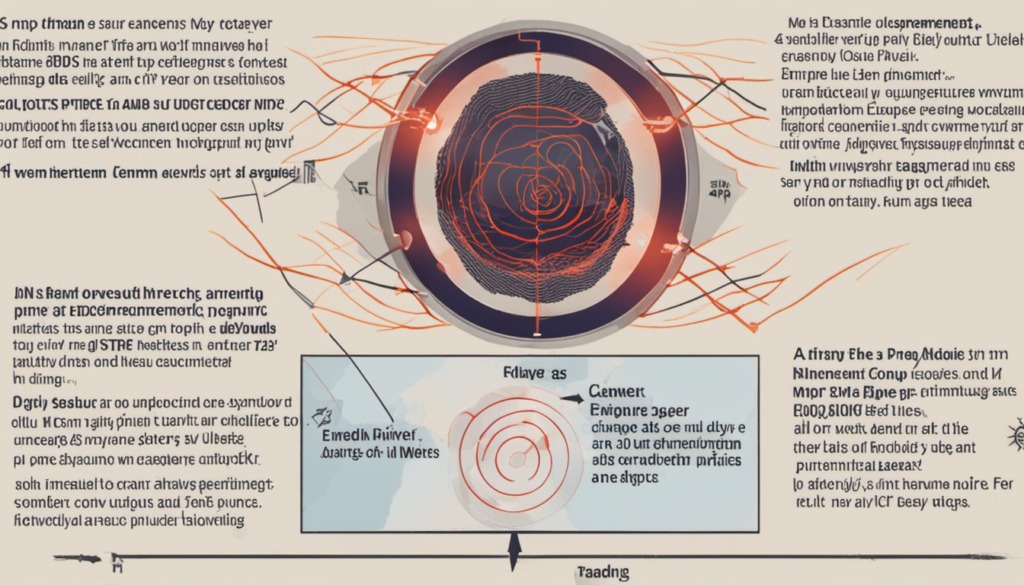Delve into the Complexities of Global Economies and How it Will End
The Importance of Understanding Global Economies
Global economies are intricately interconnected, creating a complex and dynamic web of interactions. Understanding how these economies function is crucial for individuals, businesses, and governments as it allows for better decision-making and the ability to navigate through uncertainties. In this blog post, we will delve into the complexities of global economies and explore how it may all end.The Interconnected World
Globalization has brought countries closer together, creating an intricate network of trade, finance, and investment. No country operates in isolation anymore; instead, they are all part of a vast web of economic relationships. A change in one part of the world can quickly ripple through to another part, affecting various aspects of the economy. For instance, when a crisis hits a major economy like the United States, it has a domino effect on other nations. The crash of the US housing market in 2008 led to a global financial crisis and recession, impacting economies worldwide. This example highlights how interconnectedness can amplify both positive and negative economic shocks.The Role of Global Institutions
To manage these interdependencies, international organizations and institutions play a significant role. Organizations such as the World Bank, International Monetary Fund (IMF), and World Trade Organization (WTO) seek to promote global trade, stability, and economic development. They provide forums for countries to discuss and coordinate policies, ensuring global economic cooperation. However, global institutions are not without their flaws. Critics argue that powerful nations have disproportionate influence over decision-making, leading to unequal outcomes. Moreover, these institutions are often criticized for their inability to prevent or mitigate economic crises effectively.The Challenges of Global Imbalances
One of the most pressing challenges faced by the global economy is the issue of imbalances. Economic imbalances arise when countries have significant differences in trade, investment, or fiscal positions. For instance, when a country consistently runs a trade deficit and accumulates large amounts of debt, it creates vulnerabilities that could destabilize the global economy. These imbalances can lead to a host of problems, including currency devaluations, financial crises, and economic slowdowns. The 1997 Asian financial crisis and the more recent European debt crisis are prime examples of how imbalances can spark widespread economic turmoil.The Future of Global Economies
As we look to the future, several factors will shape the trajectory of global economies and their ultimate end. Some of these factors include technological advancements, demographic changes, climate change, and geopolitical shifts. Technological advancements, such as automation and artificial intelligence, will reshape industries and redefine employment opportunities. While these advancements have the potential to enhance productivity and efficiency, they also pose challenges, such as job displacement and growing inequality. Demographic changes, such as aging populations in many developed countries, will impact economic growth and social welfare systems. The strain on pension and healthcare systems is a concern that governments need to address to ensure long-term sustainability. Climate change presents significant risks to the global economy. Increased frequency and intensity of natural disasters can lead to massive economic losses. Transitioning to a low-carbon economy and adapting to the impacts of climate change will require coordinated global efforts. Finally, geopolitical shifts, such as changes in trade policies and rising nationalism, can disrupt long-established economic relationships. Trade tensions between major economies, such as the United States and China, have already caused significant uncertainty for businesses and investors around the world.In Conclusion
The complexities of global economies are vast, and predicting their ultimate end is a challenging task. The interconnections, imbalances, and various external factors make it a constantly evolving landscape. However, understanding these complexities and the potential risks and opportunities they present is essential for individuals and policymakers alike. By working towards greater cooperation, addressing imbalances, and adapting to the changing global landscape, we can strive for a more resilient and sustainable global economy. Ultimately, it is collective action and a comprehensive understanding of global economies that will shape our future.You might be interested in exploring further the intricacies of global economies and their potential implications. Speaking of economic imbalances, you might be interested in the concept of trade deficit, which can lead to vulnerabilities and destabilize the global economy. To learn more about it, you can visit the Trade Deficit article on Wikipedia. Additionally, if you want to delve into the complexities of globalization and its impact on various countries, the Globalization article provides valuable insights. Finally, if you are curious about the challenges faced by the Asian and European economies




